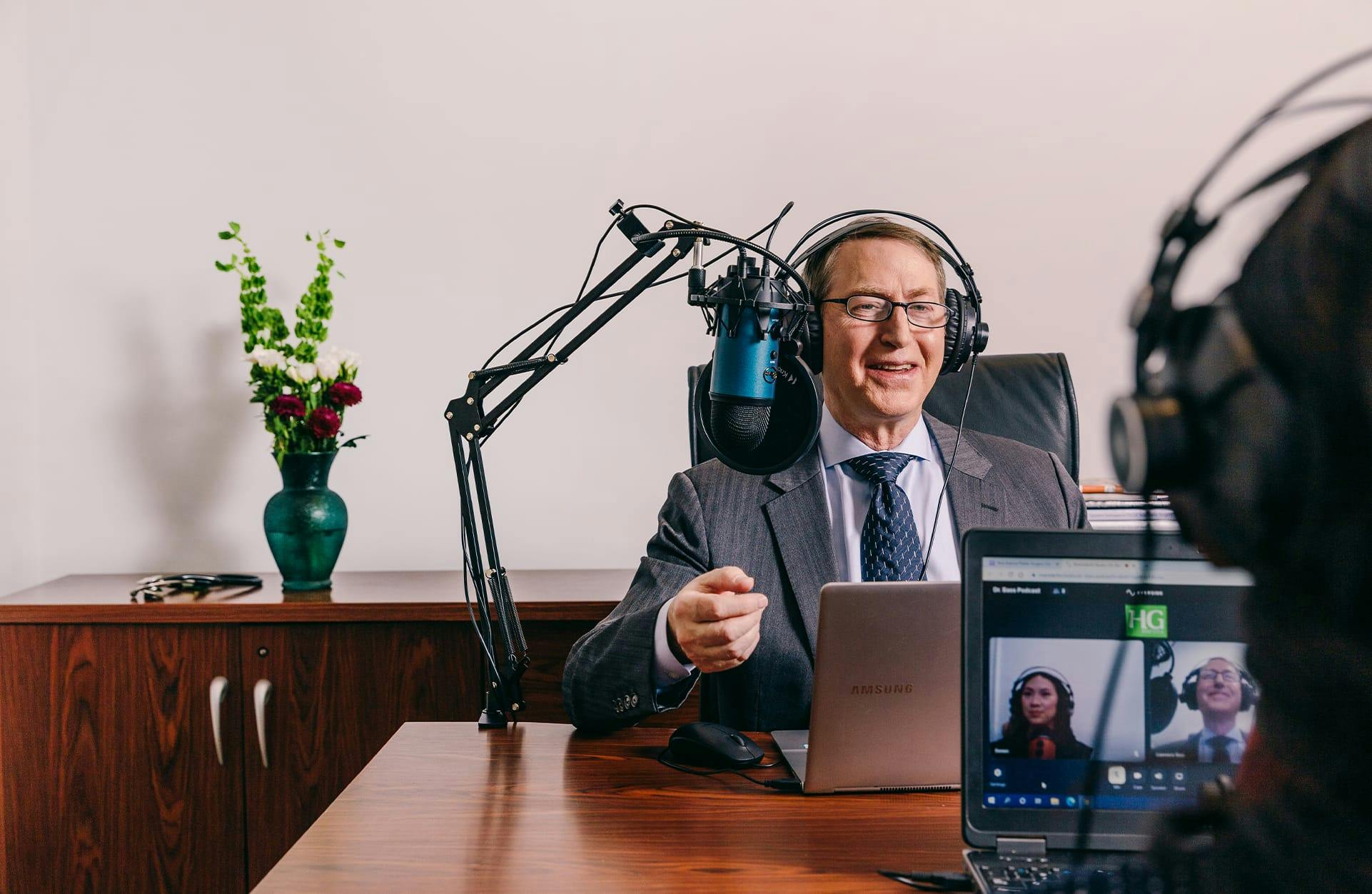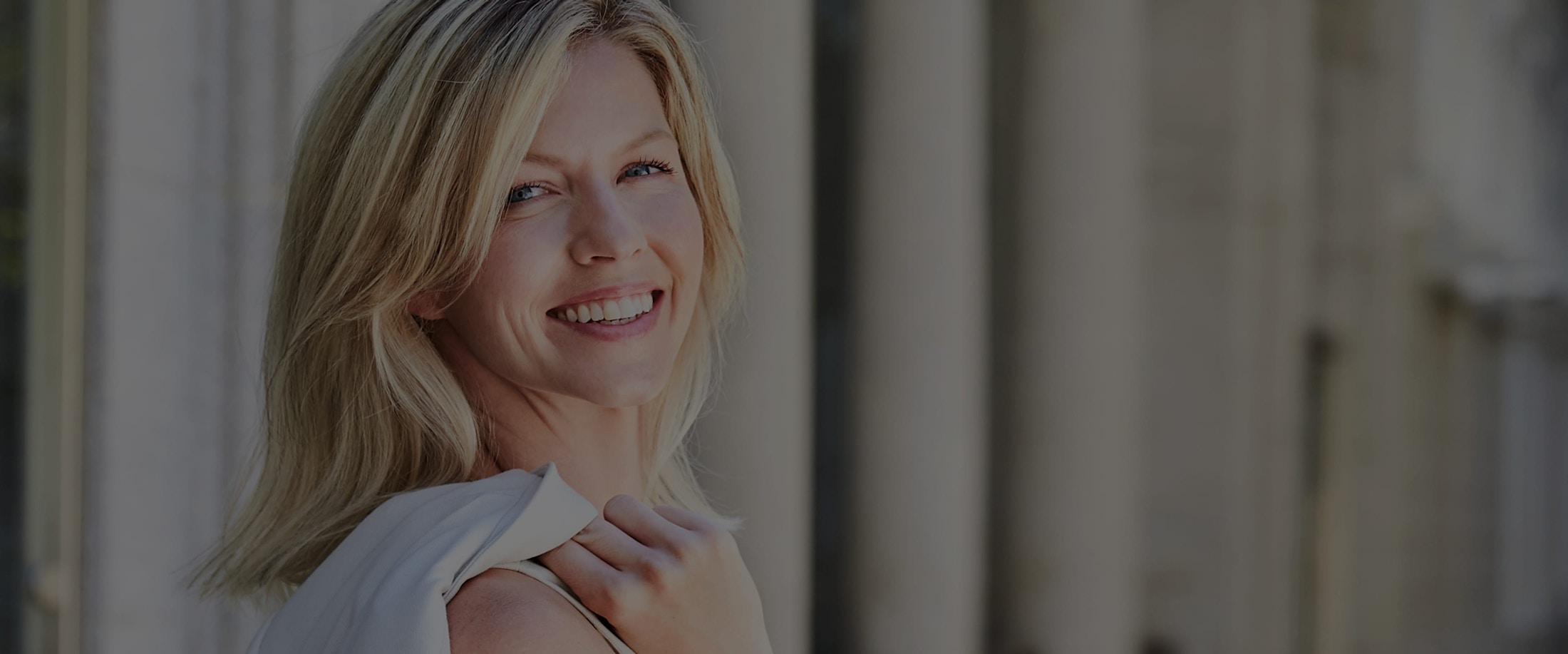The facelift is the ultimate reset for facial aging and the gold standard for tightening lax skin and restoring a more youthful look. If you want real, lasting improvement, nothing else comes close.
Today's facelift is nothing like your grandmother's. That's why we're launching a new series to break down what facelifts really look like in 2025 and debunk the outdated myths that still linger from decades past.
There's a lot of debate around facelifts, so in this series, Dr. Bass—along with Dr. Kylie Edinger in most episodes—dives into the latest research, personal insights, and what's actually happening in modern facelift surgery.
Find out why Dr. Bass is exploring this topic in depth, why Dr. Edinger is joining him for this series during her advanced training, and what you'll get out of each episode, from common controversies to what happens during surgery and what to expect during recovery.
Learn more about facelift surgery
About Dr. Kylie Edinger
Dr. Kylie Edinger is a plastic surgeon currently spending a year training as an aesthetic plastic surgery fellow with Dr. Bass and a host of other world class plastic surgeons at Manhattan Eye, Ear, and Throat Hospital in New York City. She’s part of the prestigious Northwell Health program—one of the top aesthetic plastic surgery fellowships in the country. Before making her way to NYC, Dr. Edinger completed her plastic surgery residency at the University of Wisconsin.
Follow Dr. Edinger on Instagram @kylieedinger
About Dr. Lawrence Bass
Innovator. Industry veteran. In-demand Park Avenue board certified plastic surgeon, Dr. Lawrence Bass is a true master of his craft, not only in the OR but as an industry pioneer in the development and evaluation of new aesthetic technologies. With locations in both Manhattan (on Park Avenue between 62nd and 63rd Streets) and in Great Neck, Long Island, Dr. Bass has earned his reputation as the plastic surgeon for the most discerning patients in NYC and beyond.
To learn more, visit the Bass Plastic Surgery website or follow the team on Instagram @drbassnyc
Subscribe to the Park Avenue Plastic Surgery Class newsletter to be notified of new episodes & receive exclusive invitations, offers, and information from Dr. Bass.
Transcript
Summer Hardy (00:01):
Welcome to Park Avenue Plastic Surgery Class, the podcast where we explore controversies and breaking issues in plastic surgery. I'm your co-host, summer Hardy, a clinical assistant at Bass Plastic Surgery in New York City. I'm excited to be here with Dr. Lawrence Bass, Park Avenue plastic surgeon, educator and technology innovator. Today's episode is the start of a new series about the facelift. What are we talking about in this episode, Dr. Bass?
Dr. Lawrence Bass (00:28):
This is the first episode in our new facelift series to provide an introduction to what we're going to cover. I want to give our listeners an overview so that they can see all of the content we have planned.
Summer Hardy (00:46):
Before we talk about the content in the series, why did you pick this subject for a whole series?
Dr. Lawrence Bass (00:53):
That's a great question, Summer, so this is something we've talked about before on the podcast, but there's so much to discuss about facelift. It's central to my practice, which is focused on facial rejuvenation. The facelift is the gold standard for restoring the aging face. It's basically the big reset for facial aging. That's your big playing card. There's still no meaningful substitute in 2025 for the facelift procedure or anything that's even close. So if you really have a lot of lax skin, the facelift is the only option that's going to make a meaningful inroad on that. Even that being said, the facelift continues to change and evolve. It's not your grandmother's facelift, and so it's important to discuss where facelift is in 2025 because many people are walking around with ideas about facelift that are either myths or that are based on facelifts from decades past.
(02:03):
So for all of those reasons, we wanted to do a number of episodes discussing a whole range of questions. And plastic surgeons that work on the face are always analyzing their facelift results. They're trying to refine their techniques and improve outcomes. So the facelift is always changing in the medical community at large and in each individual surgeon's practice. And even though this is a very captivating subject for plastic surgeons, we're very excited to think about and talk about facelift. It's also something that's fascinating to lay people who are just interested in plastic surgery or those who are thinking about their beauty treatments, and so we thought we'd work through a number of those issues on the podcast.
Summer Hardy (02:55):
That makes a lot of sense. So how are you going to approach this?
Dr. Lawrence Bass (02:59):
There are many controversies surrounding the facelift. I always like to present different outlooks and bring guests who can discuss the reasons for their opinions. I also like to rely on evidence in the medical literature to help with that. Will have a guest on most of the episodes of this series. I'd like to introduce Dr. Kylie Edinger. Dr. Edinger is a plastic surgeon who is one of the aesthetic plastic surgery fellows with us at Manhattan Eye, Ear and Throat Hospital in New York City, spending a year doing the Aesthetic Plastic Surgery fellowship. This is a Northwell Health program, that's one of the premier fellowships in aesthetic plastic surgery in the United States. Prior to working with us in New York City, Dr. Edinger completed her plastic surgery residency training at the University of Wisconsin. She's graciously agreed to work on this series with me helping with the discussion and with the research. Dr. Edinger, thank you for joining us.
Summer Hardy (04:10):
Yes, welcome Dr. Edinger.
Dr. Kylie Edinger (04:11):
Thank you so much for having me. Like Dr. Bass said, I'm one of the fellows in Manhattan Eye and Ear, and I'm spending the year trying to learn as much as possible in this wonderful city from all these wonderful mentors. So I'm very honored to be here today.
Summer Hardy (04:25):
So to start, Dr. Bass told us a little bit about why he's interested in examining the facelift in depth. Can you share your thoughts about why you're interested?
Dr. Kylie Edinger (04:35):
Yeah. As a trainee, we're always learning new techniques and methods of how to do various surgeries from our mentors, and the facelift is no exception to this. There are different ways to drape the skin. Different techniques used to manipulate the deeper connected tissue layers of the face and different subtleties and techniques used by surgeons including drain use, ways to prevent bleeding, like a hemostatic net and use of adjunct procedures like fat grafting. I love talking to my mentors about why they use certain techniques and modalities and what they've learned and changed over their years of experience and getting all of their tips and tricks on how to do a great facelift. We all want to do our best for our patients, and I think learning from each other helps us to continue to improve and evolve so we can do that.
Summer Hardy (05:20):
Okay, that's great. I think that I understand the idea behind the series. So what can you tell me about plans for episodes and content? What can the listeners look forward to?
Dr. Kylie Edinger (05:30):
Well, we'll have a few general categories of episodes covering various techniques, controversies, and what the facelift can and cannot accomplish.
Dr. Lawrence Bass (05:37):
Typical decisions that doctors and patients make together like about which incisions to use,
Dr. Kylie Edinger (05:44):
What kind of assessments are made during consultation, what to expect during the procedure and during the recovery process,
Dr. Lawrence Bass (05:50):
Different variations in the procedure, including neck lifts, mini lifts, and others.
Dr. Kylie Edinger (05:56):
Yeah, others including deep plane facelift, neck techniques, plications and SMASectomy techniques.
Dr. Lawrence Bass (06:03):
We'll also discuss facelift myths and logically analyze some of the fundamental principles to determine if they really make sense or not.
Dr. Kylie Edinger (06:12):
We'll also discuss anything in the news about facelift or big new developments from any of the plastic surgery meetings.
Summer Hardy (06:20):
That all sounds really interesting. I can't wait. So who is this episode for and how should they use all of this information?
Dr. Lawrence Bass (06:28):
Like all of our podcast episodes, these are designed for lay people. Anyone who wants to learn more about plastic surgery or who is trying to learn background information to help with planning and decision-making for his or her own plastic surgery care. This particular series may also be useful for plastic surgery residents who are building their fund of knowledge and trying to understand the evolution and current state of the art of facelift. The information in the episodes is not designed to give an absolute answer, but to explain the rationale and principles behind different approaches to facelift. In some cases, this is based on my 30 plus years of experience, and in some cases it's based on data in the medical literature, like most of what we discuss in the podcast, this is my approach or opinion. At the end of the day, you need to meet with an experienced board certified plastic surgeon, relate your concerns, listen to his or her analysis, and go with the surgeon you feel comfortable working with and who makes you feel heard.
Summer Hardy (07:42):
And do you have any advice for our listeners about this series, Dr. Edinger?
Dr. Kylie Edinger (07:46):
Yeah. My advice is to listen and learn along the way with us. But to remember that at the end of the day, you and your surgeon will come to a decision for which technique is best for you, just like Dr. Bass said. None of these surgeries is a one size fits all procedure, and each surgeon and patient will really have unique factors to consider together as a team. This goes per trainees as well. Part of the fun of facelifting surgery is exploring the artistic expertise of it and learning how to apply the many colors and brushes that are available to the artists to meet each individual patient's needs. So facelift surgery is always evolving, and we are lifelong learners in this endeavor, so try to have some fun too.
Summer Hardy (08:22):
Thank you, Dr. Edinger and Dr. Bass for previewing this series for us. I'm sure the listeners are as excited as I am to watch this series unfold and learn about the facelift in depth. Thank you for listening to the Park Avenue Plastic Surgery Class podcast. Follow us on Apple Podcasts, write a review and share the show with your friends. Be sure to join us next time to avoid missing all the great content that is coming your way. If you want to contact us with comments or questions, we'd love to hear from you. Send us an email at [email protected] or DM us on Instagram @drbassnyc.

